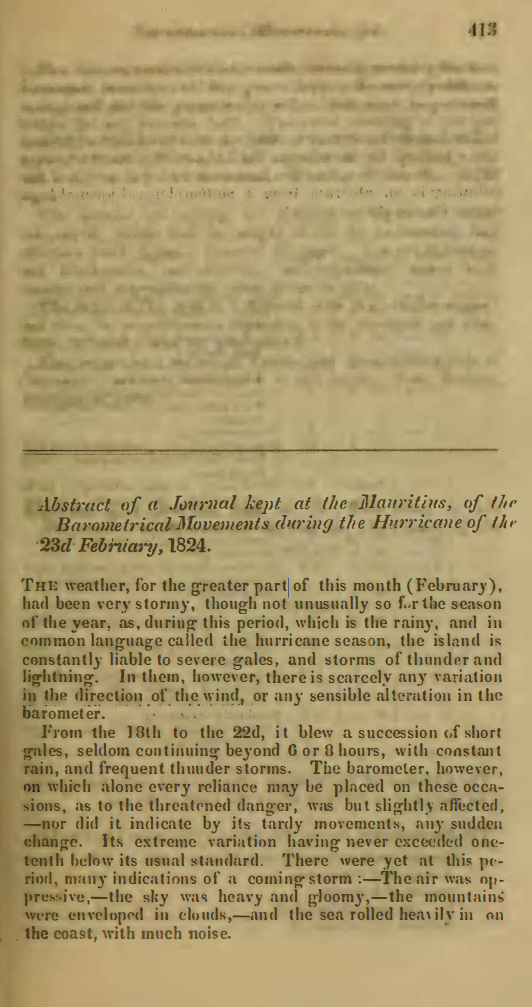Abstract of a journal kept at the Mauritius, of the barometrical movements during the hurricane of the 23d February, 1824
DOI:
https://doi.org/10.21504/saqj.14.2665Keywords:
Meteorology, Meteorology -- Mauritius, Mauritius, Hurricane, BarometerAbstract
This article presents meteorological observations, focusing on barometric pressure, recorded at an elevation of 900 feet above sea level during a severe hurricane that struck Mauritius on 23 February 1824.
Pre-Storm Conditions (Feb 18–22):The preceding days were stormy with short gales, constant rain, and frequent thunder. However, the barometer—the sole reliable indicator of danger—was only slightly affected, never dropping more than one-tenth below its standard, and thus offered no warning of the impending catastrophe. Other signs included oppressive air, gloomy sky, clouded mountains, and heavy sea swells.
Hurricane Progression (Feb 23):The wind increased overnight, and by 6 A.M. on the 23rd, the barometer had dropped to 28" 9', officially declaring the hurricane.
Thermal and General Observations:-
The thermometer remained remarkably steady at 73∘ throughout the entire gale.
-
The greatest recorded range for the thermometer during February 1824 was 13∘.
-
Other monthly statistics included 21 days of rain, 10 days of thunder/lightning, 5 rainbows, and 8 lunar rainbows.
The observations confirm the standard hurricane pattern: an initial severe gale, a significant barometric drop to the minimum pressure at the centre/eye, a temporary lull with an associated change in wind direction, followed by a second severe gale as the storm passes.
Downloads

